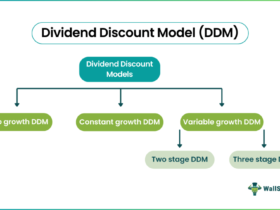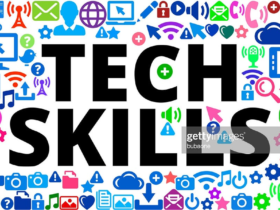In today’s dynamic and interconnected professional environments, being open-minded is a critical trait for success. It refers to the willingness to consider and accept new ideas, perspectives, and experiences, even when they challenge personal beliefs or established norms. This quality fosters innovation, collaboration, and personal growth, enabling individuals and organizations to adapt to change and address complex challenges effectively.
1. What’s the meaning of being open-minded?
Being open-minded means being receptive to new ideas, perspectives, and experiences, even if they differ from your own beliefs or preconceptions. It involves the willingness to consider alternative viewpoints, remain flexible in your thinking, and adapt to new information. Open-minded individuals are curious, non-judgmental, and willing to learn from others, which fosters better problem-solving, collaboration, and personal growth.
2. Benefits of having an open mind
- Enhanced Problem-Solving: Open-minded individuals are more willing to consider different approaches, leading to creative and effective solutions to challenges. By evaluating multiple perspectives, they can find innovative ways to address problems.
- Better Decision-Making: Open-mindedness encourages individuals to gather more information, consider various options, and weigh pros and cons before making decisions. This leads to more thoughtful, well-rounded choices.
- Increased Adaptability: Open-minded people are more flexible and able to adapt to change. In fast-paced or evolving environments, they can quickly adjust to new situations, ideas, and technologies.
- Improved Relationships: Being open-minded fosters better communication and collaboration with others, especially in diverse teams. It helps build respect and understanding, creating stronger interpersonal connections.
- Personal Growth: Open-mindedness encourages learning and self-improvement. By being receptive to new experiences, feedback, and challenges, individuals expand their knowledge and capabilities.
3. The Role of Open-Mindedness in the Workplace
3.1. Fostering Innovation:
Open-mindedness is essential for fostering creativity and innovation. When employees are willing to explore new ideas, experiment with different approaches, and embrace diverse viewpoints, they contribute to the development of creative solutions. In industries like finance, technology, and healthcare, where problem-solving and adaptability are crucial, open-mindedness drives progress and helps companies stay ahead of the competition.
3.2. Encouraging Collaboration:
Open-minded professionals tend to be more effective team players. By being receptive to others’ perspectives and ideas, they create an environment where collaboration thrives. This is especially important in multicultural workplaces, where different cultural backgrounds and viewpoints can enrich problem-solving and decision-making processes. Open-mindedness helps break down barriers and fosters a spirit of teamwork and mutual respect.
3.3. Adaptability to Change:
In an ever-evolving business landscape, open-minded individuals are more adaptable to change. Whether it’s a shift in organizational priorities, technological advancements, or market trends, those who remain open to new information and approaches are better positioned to navigate uncertainty and challenges. This adaptability allows them to thrive in dynamic and fast-paced environments.
3.4. Improving Decision-Making:
Open-mindedness enhances decision-making by encouraging individuals to consider a wider range of options. Instead of relying on familiar methods or quick fixes, open-minded professionals take the time to assess different viewpoints, weigh the pros and cons, and make more informed, thoughtful decisions. This comprehensive approach reduces the risk of oversight and increases the likelihood of successful outcomes.
3.5. Personal Growth and Learning:
Open-mindedness plays a significant role in personal development. By being open to feedback, new ideas, and experiences, individuals can continuously learn and grow. This mindset allows professionals to adapt to new roles, acquire new skills, and develop a more well-rounded understanding of their industry or field. Open-mindedness encourages a lifelong learning approach, which is essential in today’s rapidly changing job market.
4. Practical Tips for Cultivating Open-Mindedness
4.1. Challenge Assumptions:
Regularly question your own beliefs and assumptions to remain open to new perspectives. This practice helps identify potential biases and encourages critical thinking.
4.2. Seek Diverse Perspectives:
Actively engage with colleagues or peers from different backgrounds, cultures, and areas of expertise. This exposure broadens your understanding and enhances your ability to think outside the box.
4.3. Be Receptive to Feedback:
Accept constructive criticism and feedback as an opportunity to learn and improve. Open-minded professionals view feedback as a tool for growth rather than a personal critique.
4.4. Practice Active Listening:
Take the time to listen carefully to others, ensuring you understand their points of view before forming your own opinions. This shows respect for diverse ideas and promotes more effective communication.
4.5. Embrace Change:
Stay open to new methods, tools, or technologies that can improve your work. Being open to change can lead to greater efficiency and innovation in your role.
























The practical tips for cultivating open-mindedness are great! I especially appreciate the emphasis on seeking diverse perspectives and being receptive to feedback. These are actionable steps I can take to be more open-minded in my professional life.
Being open-minded is crucial in today’s ever-changing professional world, and I love that this article highlights the benefits of embracing new ideas and perspectives. It’s so important for personal growth and success!
I find the role of open-mindedness in the workplace really interesting. It makes sense that it fosters innovation, encourages collaboration, and helps improve decision-making. I’ll definitely keep these points in mind at work!
Thank you for your sharing. I am worried that I lack creative ideas. It is your article that makes me full of hope. Thank you. But, I have a question, can you help me?
Can you be more specific about the content of your article? After reading it, I still have some doubts. Hope you can help me.
Thank you for your sharing. I am worried that I lack creative ideas. It is your article that makes me full of hope. Thank you. But, I have a question, can you help me?
Your point of view caught my eye and was very interesting. Thanks. I have a question for you.
Thank you for your sharing. I am worried that I lack creative ideas. It is your article that makes me full of hope. Thank you. But, I have a question, can you help me?
Can you be more specific about the content of your article? After reading it, I still have some doubts. Hope you can help me. https://accounts.binance.com/sk/register?ref=OMM3XK51
Thank you for your sharing. I am worried that I lack creative ideas. It is your article that makes me full of hope. Thank you. But, I have a question, can you help me?
Thanks for sharing. I read many of your blog posts, cool, your blog is very good.
Can you be more specific about the content of your article? After reading it, I still have some doubts. Hope you can help me.
Your point of view caught my eye and was very interesting. Thanks. I have a question for you.
xlmxs7
pq2r40
mfh21l
Your point of view caught my eye and was very interesting. Thanks. I have a question for you.
zmfy5l
Thank you, your article surprised me, there is such an excellent point of view. Thank you for sharing, I learned a lot.
Thanks for sharing. I read many of your blog posts, cool, your blog is very good.
Your article helped me a lot, is there any more related content? Thanks!
Thank you for your sharing. I am worried that I lack creative ideas. It is your article that makes me full of hope. Thank you. But, I have a question, can you help me?
I don’t think the title of your article matches the content lol. Just kidding, mainly because I had some doubts after reading the article.
Can you be more specific about the content of your article? After reading it, I still have some doubts. Hope you can help me.
Thank you for your sharing. I am worried that I lack creative ideas. It is your article that makes me full of hope. Thank you. But, I have a question, can you help me?
**mind vault**
mind vault is a premium cognitive support formula created for adults 45+. It’s thoughtfully designed to help maintain clear thinking
**mind vault**
mind vault is a premium cognitive support formula created for adults 45+. It’s thoughtfully designed to help maintain clear thinking
lxgkum